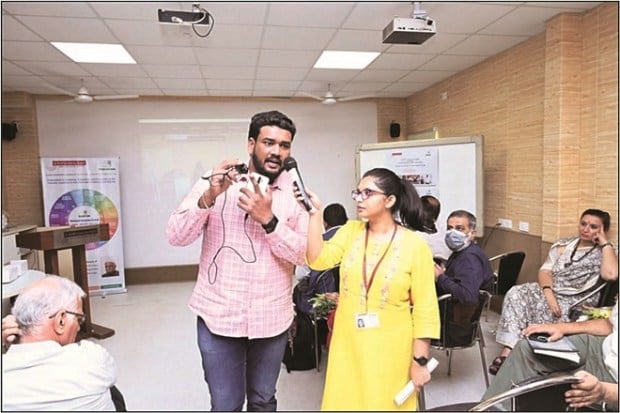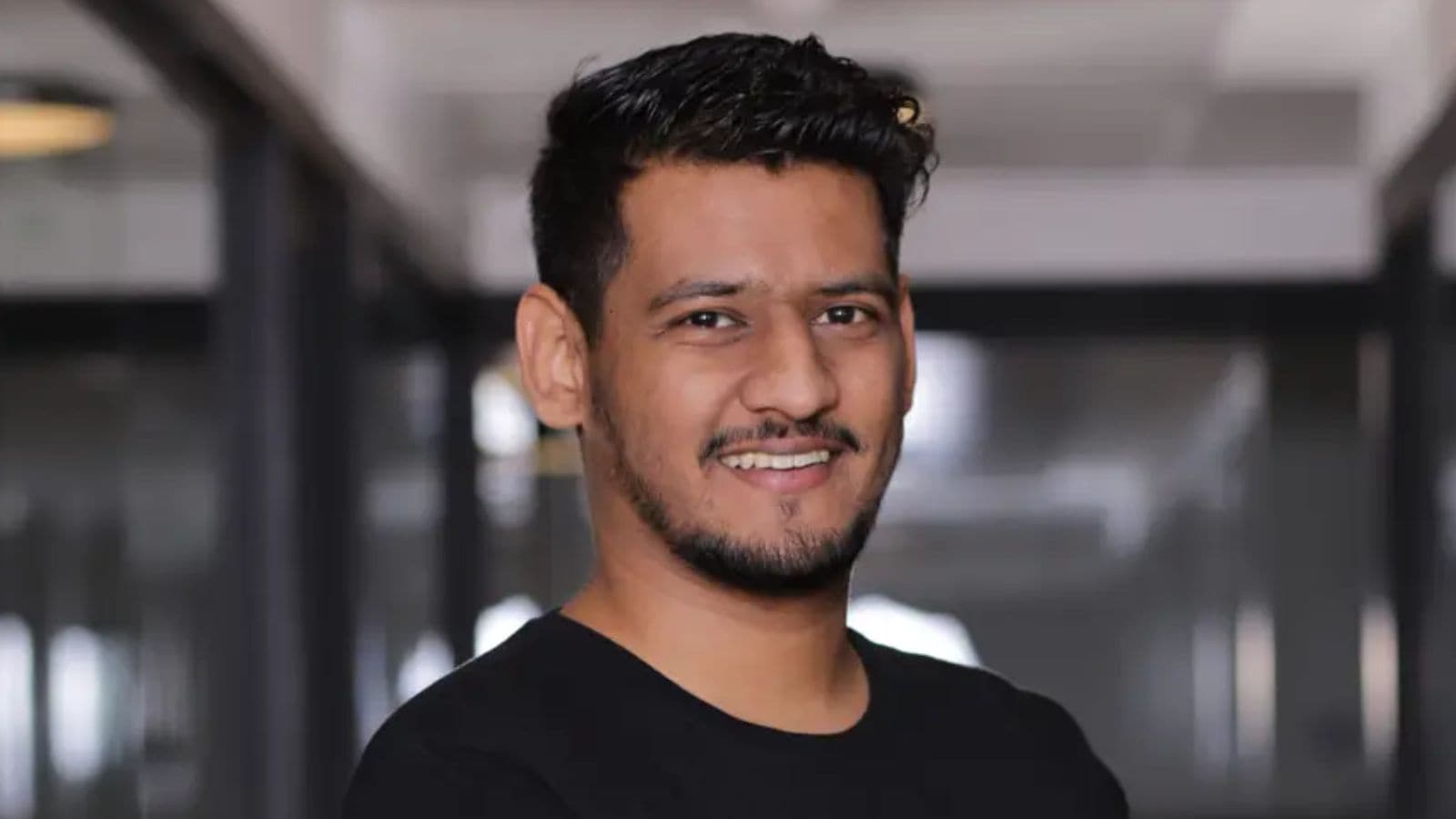Today, the majority of wearables are fitness-focused and trendy devices that the tech-savvy lot like to flaunt in their social circles. Here is a meaningful innovation that can make a huge difference in the lives of the visually impaired. Dr Shroff Charity Eye Hospital, which is one of the oldest eye and ENT care institutes in the country, in partnership with Vision-Aid, an international NGO that works for the welfare of the visually impaired, has introduced a wearable assistive device, called Smart Vision Glasses, as well as provide smartphones for them.
The Smart Vision Glasses is an innovative Artificial Intelligence (AI)-based wearable device which can help the visually impaired read, navigate, and recognise objects and people. It’s unique selling point: this wearable assistive device is low-cost and affordable (approximate cost is Rs 25,000-30,000) and offers support for various languages, such as Hindi, Kannada, Tamil, Telugu, Malayalam, Marathi, Gujarati and Urdu and many foreign languages, said Ramu Muthangi, director SHG Technologies, Bangalore.
Also read: Twitter edit button to have a limit; up to five edits in 30 minutes allowed: Report
Smart Vision Glasses is the outcome of a tripartite collaboration between Dr Shroff Charity Eye, Vision-Aid and SHG Technologies, a Bangalore-based technology startup, that developed the Smart Vision Glasses in collaboration with Vision-Aid. “About 800 visually impaired people have benefitted by the device. Now they can read books of their choice (non-Braille coded), get to know the things around them, walk without running into obstacles and identify their friends and family,” said Vijay Francis, programme director, Vision-Aid India. Today’s AI-based glasses, available from the USA and Europe, are very expensive (typical price is around Rs 4 lakh) and unaffordable to many here.
The Smart Vision Glasses is accompanied by a smart earpiece which reads and understands and tells the same to blind people. It enables the visually impaired to identify things around them, provide walking assistance and provide face recognition, said Soniya Srivastava, assistant manager, low vision services, Dr Shroff’s Charity Eye Hospital, New Delhi.
Dr Shroff Charity Eye Hospital along with Vision-Aid and its partner Trees for Life India (TFL) had launched a joint programme in 2021 to provide smartphones to deserving individuals with vision impairment. Through this programme, they aim to help the community gain access to assistive technologies through the smartphones that can have life-changing impact on their daily lives. From AI-based applications that can help call out the objects around the blind, to safe navigation applications, as well as learning apps that can connect them to a range of digital education resources; these smartphones will open the doors to sophisticated and freely available mobile apps, said Srivastava.

The mobile phone dissemination is followed by a mobile technology training programme to onboard users with the assistive features of the smartphone, as well as the various utility apps available. The phones have special apps which are designed to help the visually impaired patient navigate, make payments etc. Available on the Play Store, Visor helps to see the visually impaired people by magnifying the objects around them. Another app is—Be My Eyes, that helps the blind to locate and navigate. There is also Mani, an app designed by RBI for blind people to identify currency.
Also read: Instagram to let users repost other people’s posts, Reels; here are all the details
According to the three partners, considerable R&D efforts are being put into implementing features that make the Smart Vision Glasses more useful and vision impaired-friendly. “The future product will be lightweight with electronics built into temples, improved sensor and AI/ML technology and more,” informed Muthangi at SHG Technologies.
KEY BENEFITS
* Smart Vision Glasses identifies objects, such as vehicles, obstacles, traffic signals, furniture
* Its object detection feature distinguishes it from similar products
* Offers regional language support in addition to English
* Proximity sensor coupled with AI for increased safety








